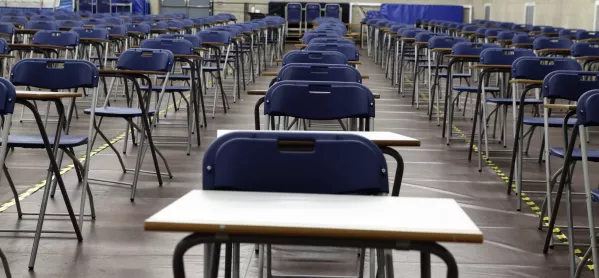The current public examinations system is “creating barriers” to students with SEND, exam officers have warned.
In a reform proposal submitted to Ofqual - and exclusively shared with Tes - the International Examination Officers’ Association claim that pupils with SEND are currently “not able to demonstrate their knowledge, understanding and ability to the full”.
The proposal says that “compliance and conformity with the regulations” has meant that “teaching and learning is skewed in a direction which is not necessarily in the best interests of pupils”.
And it takes aim at the current system of access arrangements - the adjustments that are supposed to ensure that candidates with SEND can take part in exams on a fair basis.
“It has become apparent that the present access arrangements process can no longer be operated effectively and fairly,” the document says.
The exam officers are concerned that methods of helping pupils with SEND in exams such as providing scribes or readers, can damage pupils’ education because they are different to the more advanced assistive technology that they would otherwise be able to use and benefit from in school.
They also believe that such technology would be more appropriate as it will be closer to what pupils are likely to encounter in their working lives.
“In some centres, teachers, SENCOs and exam officers are being asked to comply with a set of external rules and guidelines designed around exam protocols which appear to come into conflict with their expert perception of what student ‘need’ really is.
“The overemphasis on the present [exam board] access arrangements process as just another exam protocol is driving patterns of behaviour in the education sector and is seen by many in the SEND community and beyond, as damaging to the educational experience of many students.”
The document also claims that complicated rules regulating access have increased the scope for malpractice.
“The recent report on the rise in malpractice within centres by Ofqual is not just the result of deliberate actions by individuals and centres,” the proposal says.
“It is also partly a consequence of the growing complexity of these documents and their lack of clarity which may lead to confusion in practice within various centres.”
The iEOA say that the approach of giving SEND students ‘scribes’ and ‘readers’ in exams is no longer “serving these students’ educational needs nor supporting their independence”.
They call for SEND students to be given greater freedom to use “assistive technology within the education and exam sector [which] will help towards establishing a more independent and employable SEND community”.
The proposal notes that “there is, surprisingly, no current requirement for digital versions of exam papers to meet accessibility standards”.




